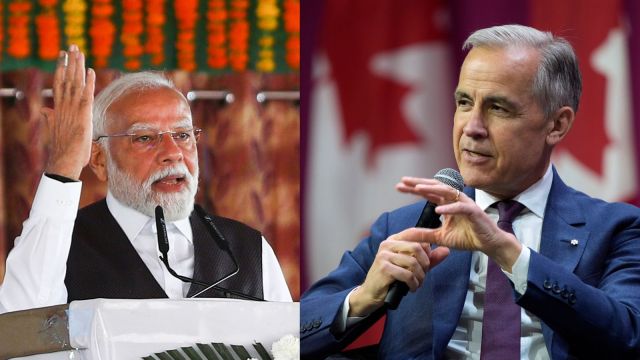Once again, the Congress party has shown that when it cannot lead, it resorts to misleading. In its latest attempt to grab headlines, Congress has launched a frivolous tirade against Prime Minister Narendra Modi, this time over India’s invitation to the upcoming G7 Summit hosted by Canada. According to the party and its dynastic leader, Rahul Gandhi, the “late invite” from Canada is a diplomatic snub. If this isn’t an example of manufactured outrage and political immaturity, what is? Let’s get the basic facts straight. India is not a member of the G7. The G7 – comprising the United States, United Kingdom, France, Germany, Italy, Japan, and Canada, along with the European Union – is a bloc of advanced economies that meets annually to deliberate on major global economic and political issues. While India is not a formal member, it is often invited as a guest or observer, as are other major democracies and regional powers like Indonesia, Poland, South Korea, and Australia. This year’s summit, to be held in Kananaskis, Alberta, from June 15–17, follows that very tradition. The claim that Canada delayed inviting India is laughable, and even if true, it is diplomatically inconsequential. G7 invitations to non-member observer nations are often finalised closer to the event, after formalities between member states. Prime Minister Justin Carney’s government, despite its ongoing diplomatic tensions with India following the Nijjar episode in 2023, has formally extended an invitation to Prime Minister Modi — a move that itself speaks volumes about India’s global stature.

Moreover, the Canadian PM and Modi have reportedly agreed to remain in contact and meet during the summit — a pragmatic step towards thawing strained ties. In any mature democracy, this would be seen as a sign of diplomatic engagement and resilience. But not for the Congress party, which has turned its political opposition into a full-time propaganda operation. It sees Modi’s global engagements not as opportunities for India, but as threats to its own irrelevant stature. The irony is rich: this is the same Congress party that proudly advertised Nehru’s non-aligned rhetoric, but now throws tantrums over not being instantly welcomed into exclusive Western economic clubs. It’s the same Rahul Gandhi who recently lectured Western audiences on the so-called “death of democracy” in India, who now wants that “undemocratic” India to be showered with G7 red carpets. This isn’t geopolitics — this is gaslighting. For context, decisions taken at G7 summits are non-binding, and participation as a guest does not equate to endorsement or alliance. Yet, India has been a regular invitee under Modi’s leadership, recognition of India’s growing economic muscle and diplomatic clout. That this year’s invite came even amidst bilateral tensions with the host nation only underscores India’s indispensability in global dialogue. The Congress’s ignorance extends to history. It was in 2014, after Russia annexed Crimea, that the G8 reverted to G7 — reflecting the bloc’s sensitivity to aggression and violation of international norms. If Canada were genuinely interested in snubbing nations, it would not be extending invitations to countries with whom it has active disputes. The fact that India is on the guest list despite the diplomatic chill proves just how far removed Congress is from today’s geopolitical reality.

Also worth noting is India’s critical trade and economic relationship with Canada. From pharmaceuticals and engineering goods to gems and chemicals, bilateral trade has continued despite political tensions. Canada, like most rational states, distinguishes between issues of principle and strategic interests. Perhaps Rahul Gandhi could take a lesson or two. In the end, the Congress party’s “late invite” narrative is not just baseless — it is embarrassing. It shows a profound misunderstanding of global diplomacy and reeks of political frustration. Rather than welcoming India’s continued presence at the high table of global affairs, Congress chooses to sulk in a corner, nursing imaginary wounds. It is high time Congress stopped playing the part of the global grievance peddler. India’s foreign policy is not a tool for domestic point-scoring. It’s about long-term strategy, global partnerships, and national interest — something Congress, in its desperation, has completely forgotten. A molehill doesn’t become a mountain just because Congress shouts at it.




